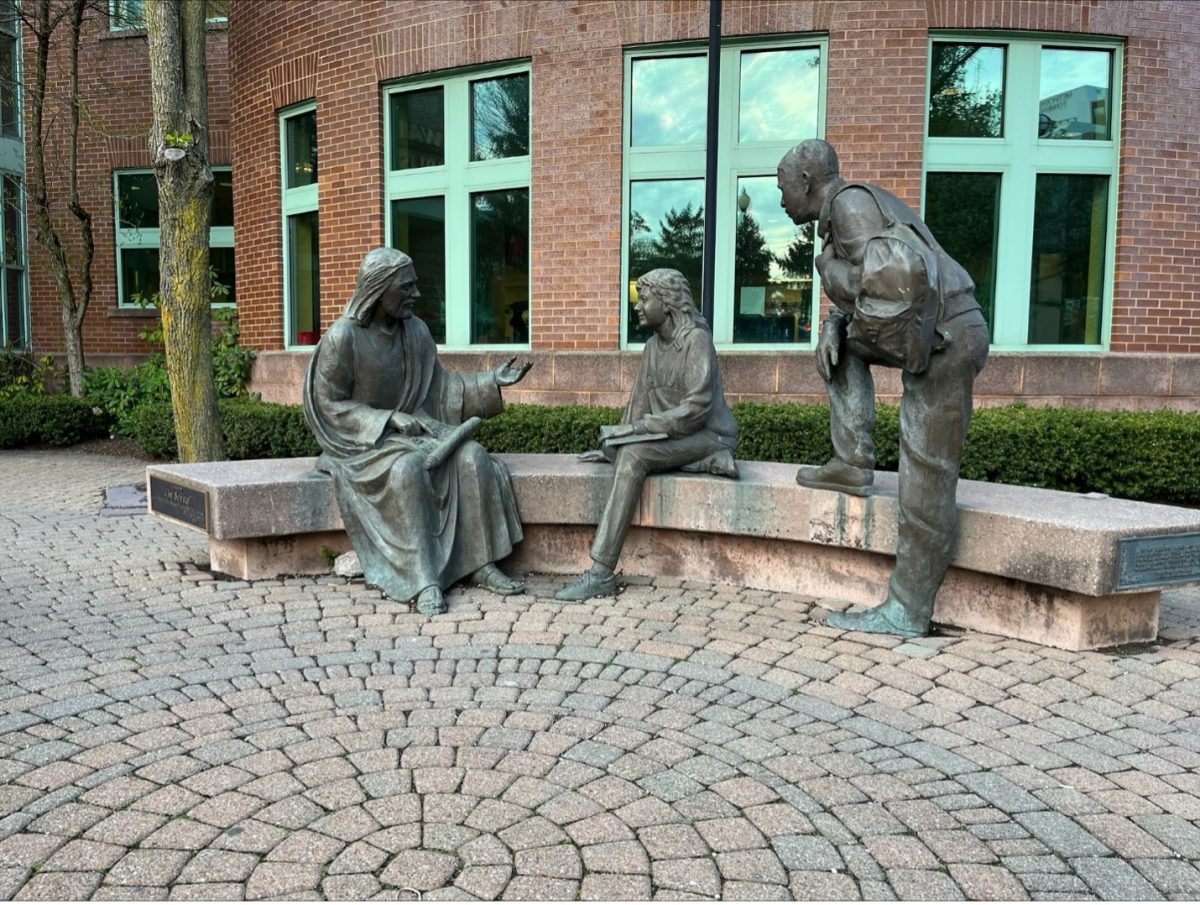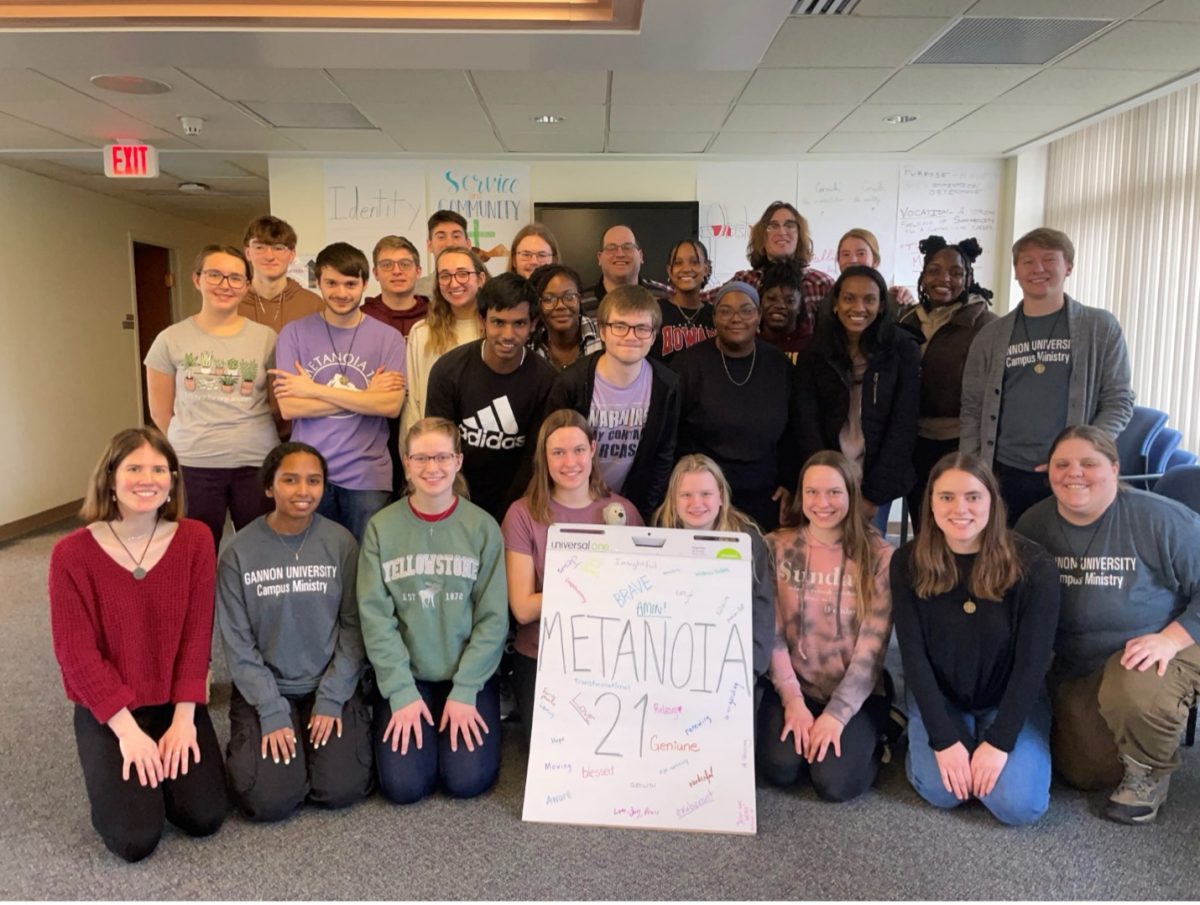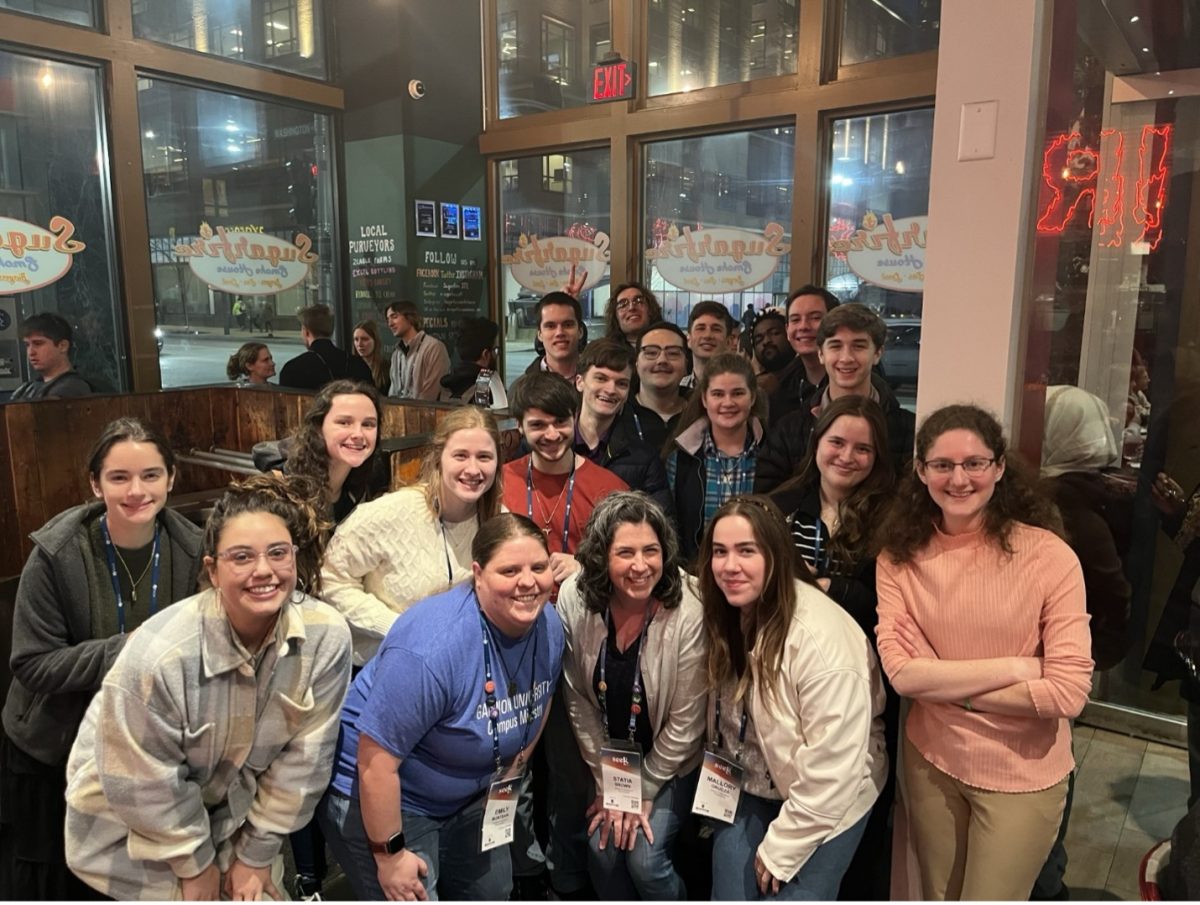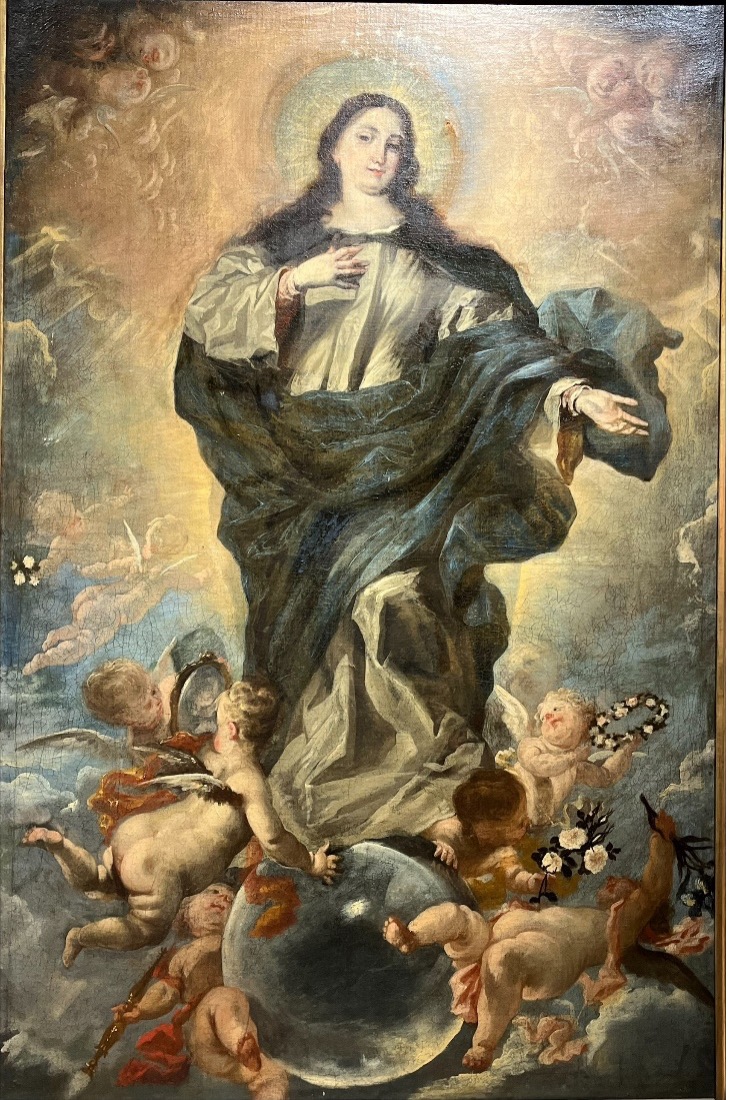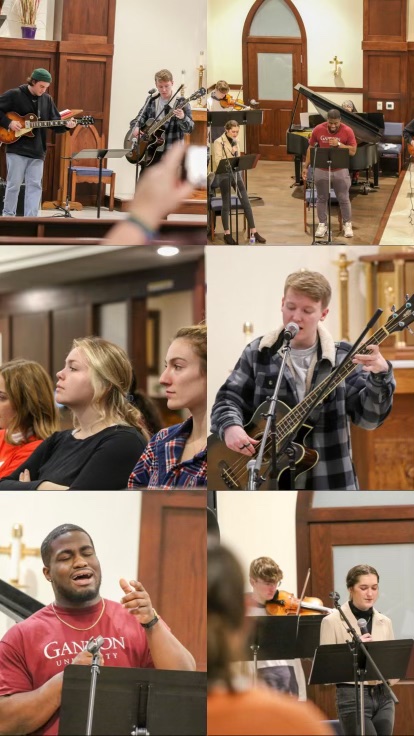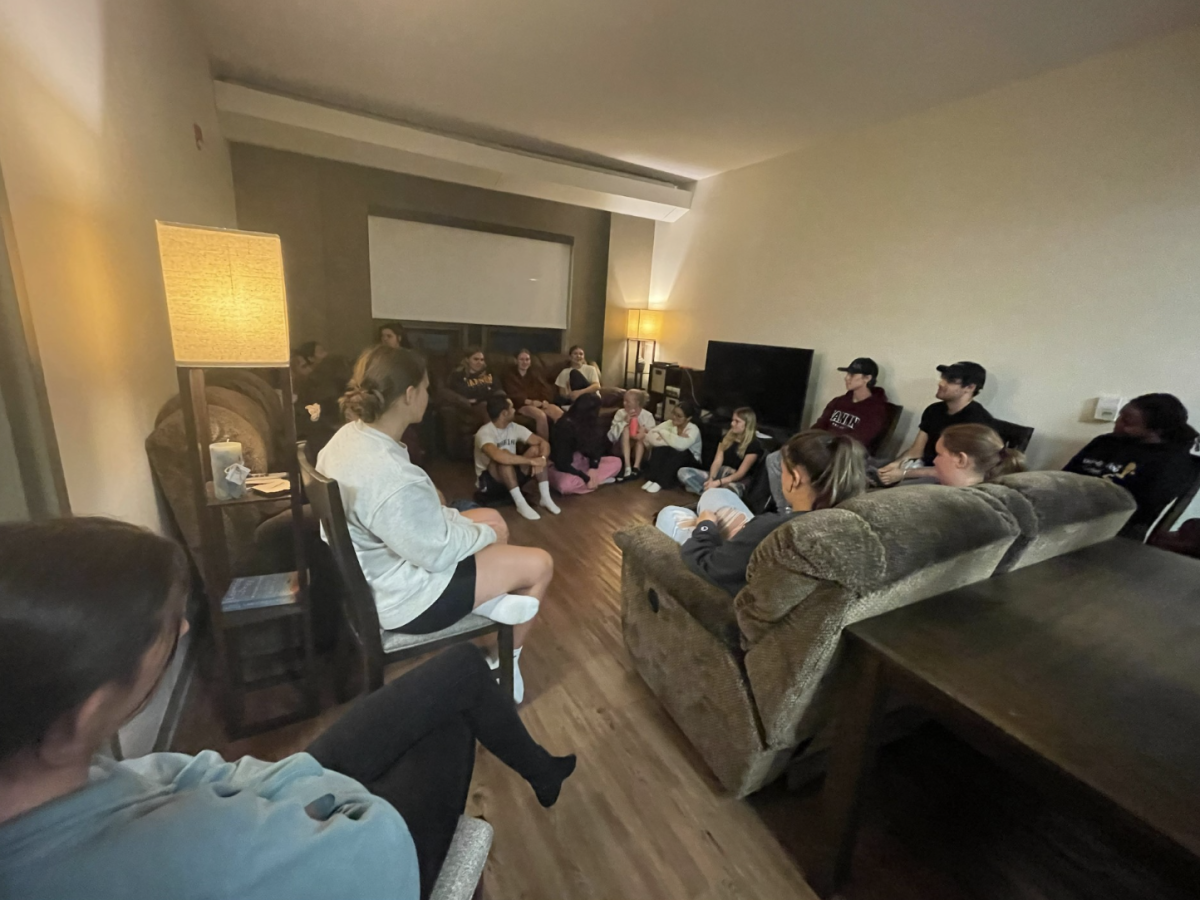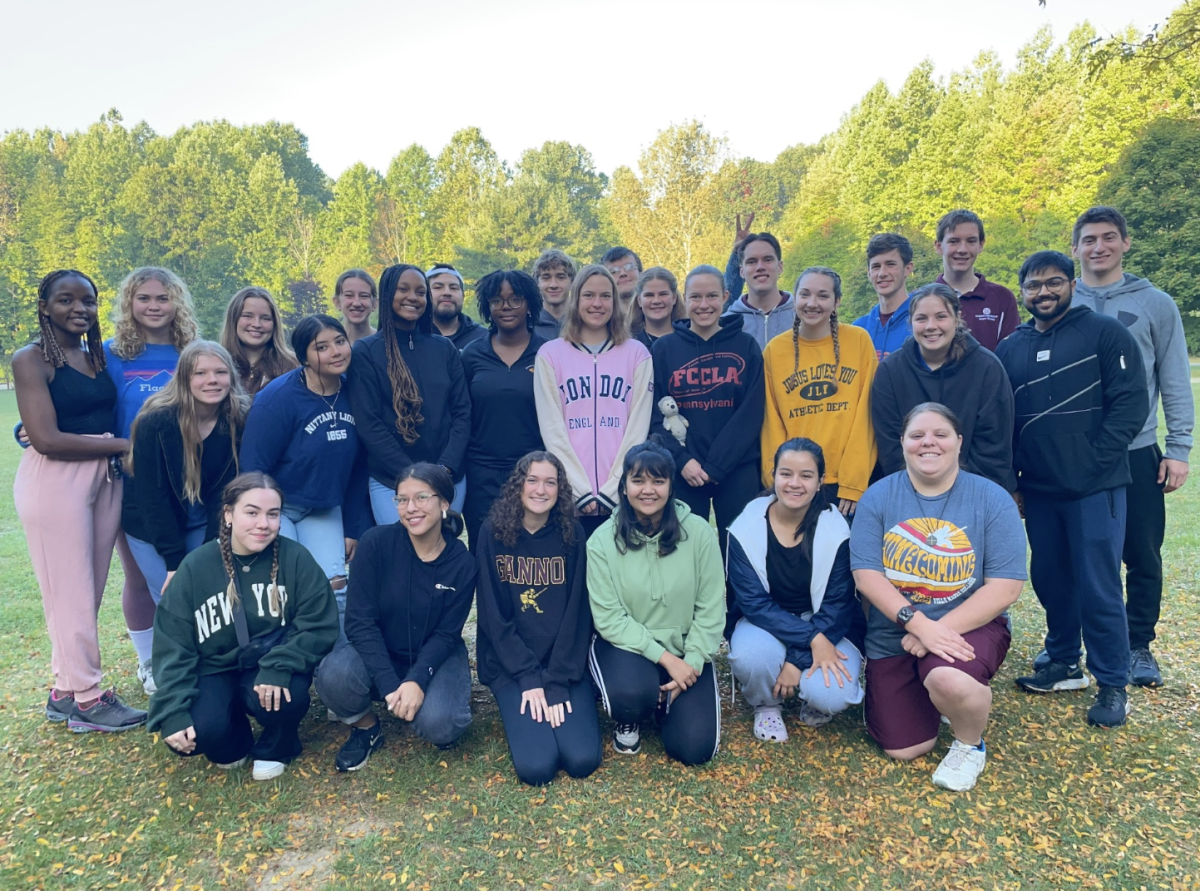January 26, 2024/12a
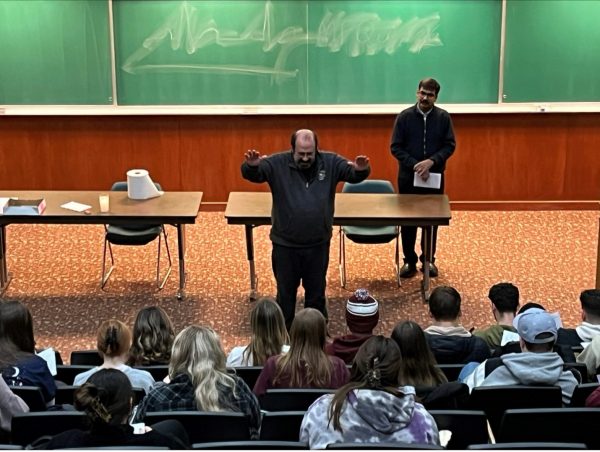
“As I reflected on the extensive learning from the Gross Anatomy course, I felt a deepening of my connection with God,” remarked Senior Biology Pre-med major Molly Sawyer as she reflected on her time within the Human Gross Anatomy classrooms and labs during the Fall 2023 semester.
One of the primary ways someone can connect this learning experience with the presence of God is through a prayer service that is held at the end of the course and a blessing service the beginning. Students from all sections of Gross Anatomy, Teaching Assistants, and the professor all attend both services.
During the first week of classes, members of the Gannon University Campus Ministry department, including University Chaplain Father Michael Kesicki, join each section of Gross Anatomy for a ceremony to bless cadavers which have been donated to Gannon University. Dr. Elisa Konieczko, a professor in the biology department who formerly taught Human Gross Anatomy, defines a cadaver as “a body prepared for dissection.”
Gannon University uniquely receives several cadavers, bodies which have been willed and donated to science post-mortem, each semester from western Pennsylvania and eastern Ohio.
These donated bodies are then anonymously used throughout the semester to teach different aspects of the human body to Gross Anatomy students pursuing various health sciences. The only information that is ever shared about each donated body is the age, gender, educational level, and cause of death. Dr. Konieczko credits the donated bodies Gannon students are privileged to dissect and study as being “the best anatomy teachers for [her],” because they can teach students “far more than any textbook.”
She also recognizes that these bodies once housed souls and are thus sacred, and they ought to be treated with respect, honor, and dignity. Similarly, Father Michael Kesicki, when blessing the donated bodies, reminds students to take this class seriously because each body was formerly a temple of the Holy Spirit.
Through this experience, students will learn to heal others in their future in health care. Sawyer recalls that “the blessing ceremony at the beginning of the semester served as an opportunity to remember the selfless choice made by individuals who donated their bodies. Within the service, I began to reflect on the beauty and fragility of life.”
Throughout the semester, students like Sawyer and Junior Physical Therapy major and Psychology minor Lili Glover remained mindful of the dignity and respect owed to each body. Understanding this “helped [Glover] a lot during the first couple of labs that [they] had done, as the bodies were donated in a way to help science.”
After three months of dissecting donated bodies and learning a lot about each person, even discovering cancerous cells or other ailments unbeknownst while alive, it may become easy to lose sight of the humanity and dignity owed to each body. According to Dr. Konieczko, “the purpose of a memorial service is to bring you back” to that understanding.
It was for this reason that two decades ago she incorporated a non-denominational closing prayer service at the end of each semester during which students take turns reflecting on the course.
For Glover, “the prayer service at the end of the year helped to give me closure on the experience that I was able to have.” Other students in Glover’s class were grateful to be able to work with donated bodies and take Human Gross Anatomy in general.
Others appreciated the assistance of the Teaching Assistants, those who donated their bodies to science, and the current Gross Anatomy professor, Dr. Prasad Dalvi. Dr. Dalvi is happy to “continue the traditions started by Dr. Konieczko in good faith, and he really respects and looks forward to hearing the words of wisdom shared by [Assistant Director of Campus Ministry] Emily Muntean and Father Kesicki each semester.”


